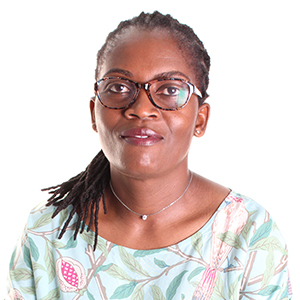I’m a PhD graduate from Malawi, and I studied Electronic, Electrical and Systems Engineering. My research set out to address resilience challenges in Malawi’s electrical power system – an issue that affects millions of people across the country.
Malawi faces serious challenges with energy insecurity, low energy access and a vulnerable electricity grid. These stem from over-reliance on hydro-electric generation, underdeveloped infrastructure and limited regional interconnections. Much of the ageing grid, dating back to 1966, is highly exposed to floods, droughts, storms and earthquakes, leaving the power system extremely fragile.
This poses an enormous threat to Malawi’s electric power systems and the associated socio-economic systems that depend on reliable delivery of electric power.
My research outcomes
I developed an integrated resilience framework with guidelines for comprehensive and inclusive resilience evaluations tailored to weak and underdeveloped electrical grids . It shows how grid operators can improve their responses, and how Malawi’s Ministry of Energy (MoE) can do more to ensure the policy provides a conducive operating environment to foster power system infrastructure resilience. The framework also recommends ways to strengthen defences against extreme weather while maintaining the capacity to withstand other disasters.
Making an impact
One case study in my research examined how Malawi’s National Energy Policy (NEP) supported power system resilience (PSR). I identified key gaps and drafted recommendations, which I presented in a policy brief submitted to the Ministry of Energy. At the time, the 2018 NEP was overdue for review – at the inception meeting for the draft 2025 NEP, a new section of resilience objectives and strategies had been added in response to my brief.
I originally submitted the brief just to clear my conscience. Learning that my recommendations had been adopted was surreal – the best moment of my academic journey. It was proof that my work had made a tangible impact, and I felt encouraged to know that my research hadn’t gone to waste.
If implemented, the changes could expand energy access, strengthen defences against climate impacts and reduce the impact of climate change. Since Malawi’s critical infrastructure relies on a stable and constant power supply, this policy change could significantly improve national well-being on a huge scale.

My Loughborough experience
I decided to apply to Loughborough University because I had heard great things about it: during my undergrad, some of my lecturers had done their master’s degrees at Loughborough and one was studying towards a PhD there. They talked about the University all the time and how great the supervisors were, so I was keen to experience this incredible support during my own studies.
I was also applying for a Commonwealth Scholarship, and I needed to have at least three potential supervisors from three different universities in the UK. When I sent out requests to various prospective supervisors, the first to respond and grant me an interview was Dr Richard Blanchard from Loughborough University. I didn’t need any further confirmation that this was where I wanted to study.
It's fair to say that I’ve experienced a few personal challenges along the way: I started my PhD journey when Covid restrictions were still in place, which led to me studying remotely for the first three months. When I came to the UK, I had just recovered from a severe case of Covid, which left me tired all the time. In addition, I had to apply to the Schlumberger’s Faculty for the Future Scholarship which required my supervisor’s support. All through this, even during times when I felt less confident, my supervisors and the university supported me in every way possible to make the journey smooth.
Working with my supervisors has been one of the best academic work experiences I have had so far. As an academic myself, I have learnt a lot which will help me in my professional life when I get back home to Malawi. They gave me a platform to grow and be confident. They also allowed me to explore other activities like supporting with teaching postgraduate students, reviewing module materials, and conducting laboratory work.
Advice to future Loughborough researchers
Loughborough University will give you a fantastically balanced student life. I jokingly tell people that you may not feel like you are in the UK because the image of the UK that everyone has is London, and Loughborough is very different. Nevertheless, it is the best. I love the quietness and feeling of safety. It is safe to bring family too, and the system has a way of supporting PhD students who are also parents.
During my studies, I worked with a number of Malawian organisations that gave me unimaginable support, providing me with the necessary data, directions and validations which reinforced the outputs of my thesis. It made me realise that social capital is vital to a researcher, as it connects you to decision-makers. The key thing is to be proactive and start making those relationships early in your PhD journey. I intend to nurture these partnerships going forwards, as there is a lot of potential for further research in the future.
What’s next?
Before starting my PhD, I was a lecturer in Energy Sciences at the Malawi University of Science and Technology. Now I’ve graduated, I will return home and continue from where I left off – my PhD will allow me to develop my academic career, and to better serve my country and my university. I also plan to monitor if the new policy statements will be implemented or funded. Improving resilience is expensive but worth the investment, and the fact that Malawi’s MoE has chosen to adopt my policy brief gives me hope for a better future.